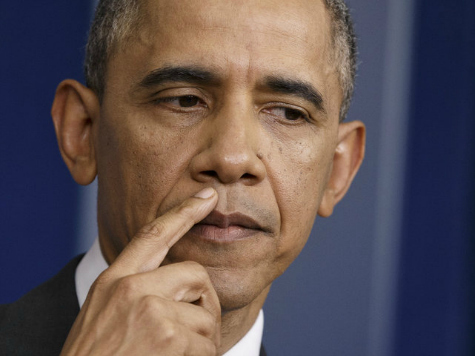President Barack Obama outlined a “new” foreign policy in an address to the graduating cadets at West Point. As with a previous address at West Point, in which Obama unwisely announced a deadline for withdrawal from Afghanistan, effectively handing victory to the Taliban, this speech was more about politics than policy. Yet in addition to the tired attacks against straw men, Obama also attacked much of what his own policy has been.
“We can’t ignore what happens beyond our boundaries.” – Framed as an attack on isolationism, this criticism actually applies to the Obama administration’s attitude towards much of the world. Notably, Obama has refused to do much of anything to counter Russia in Eastern Europe, Syria/Iran in the Middle East, or China in the Western Pacific. Those few actions he has taken in these areas have been mere symbolic gestures.
“I believe that a world of greater freedom and tolerance is not only a moral imperative, it also helps to keep us safe.” – Noble sentiments, but contradicted by Obama’s own foreign policy, which has been to appease the radical demands of Islamists in particular against freedom of speech and religion. In fact, the Obama administration co-sponsored free speech restrictions at the UN that guard Islamic anti-blasphemy laws.
“Since World War II, some of our most costly mistakes came not from our restraint, but from our willingness to rush into military adventures without thinking through the consequences.” – Ironically, President Obama uttered these words on a day when the U.S. is busily evacuating Americans from Libya–a hapless foreign intervention with no authorization from Congress, whose consequences were ignored.
“Just because we have the best hammer does not mean that every problem is a nail.” – That cliché sadly describes the Obama administration’s approach to defense spending, which it always wants to reduce. In 2009, while Obama was busy spending nearly a trillion dollars on government stimulus of every other sort, he was cutting defense spending on “shovel-ready” projects–and those cuts have been followed by more and more.
“The United States will use military force, unilaterally if necessary, when our core interests demand it–when our people are threatened, when our livelihoods are at stake, when the security of our allies is in danger.” – This is flagrantly untrue. The president declined, for example, to use military force to protect the U.S. Ambassador, his security team, and the diplomatic staff in Benghazi, Libya.
“As President, I made a decision that we should not put American troops into the middle of this increasingly sectarian war [in Syria], and I believe that is the right decision.” – Actually, Obama did not make the decision “as President,” but did so after deferring to Congress, then failing to lobby Congress to authorize the use of military force, using congressional opposition as cover for his own backtracking on Syria.
“The point is this is American leadership.” – Every case of “success” the president cited–from Ukraine to Iran to China–involved using diplomacy as the sole tool of foreign policy. And in every case, President Obama has backed down–from UN resolutions against Iranian nuclear enrichment, from Russian annexation of the Crimea, from creeping Chinese influence in the Western Pacific. Leading is precisely what Obama has not done.
“I believe in American exceptionalism with every fiber of my being.” – We know this to be untrue because he once professed to believe otherwise. An administration that took American exceptionalism seriously would not give up unilateral control of the Internet, would not submit domestic policy to scrutiny by the dictatorships of the Human Rights Council, and would not apologize over a phony YouTube video outrage.
“America’s support for democracy and human rights goes beyond idealism — it is a matter of national security.” – When he came to office, Obama actually cut funding to democracy groups in the Middle East. When the people of Iran took to the streets to demand the overthrow of the dictatorship, he did nothing to help. He came to power specifically opposing the Bush-era agenda of promoting democracy and human rights.

COMMENTS
Please let us know if you're having issues with commenting.